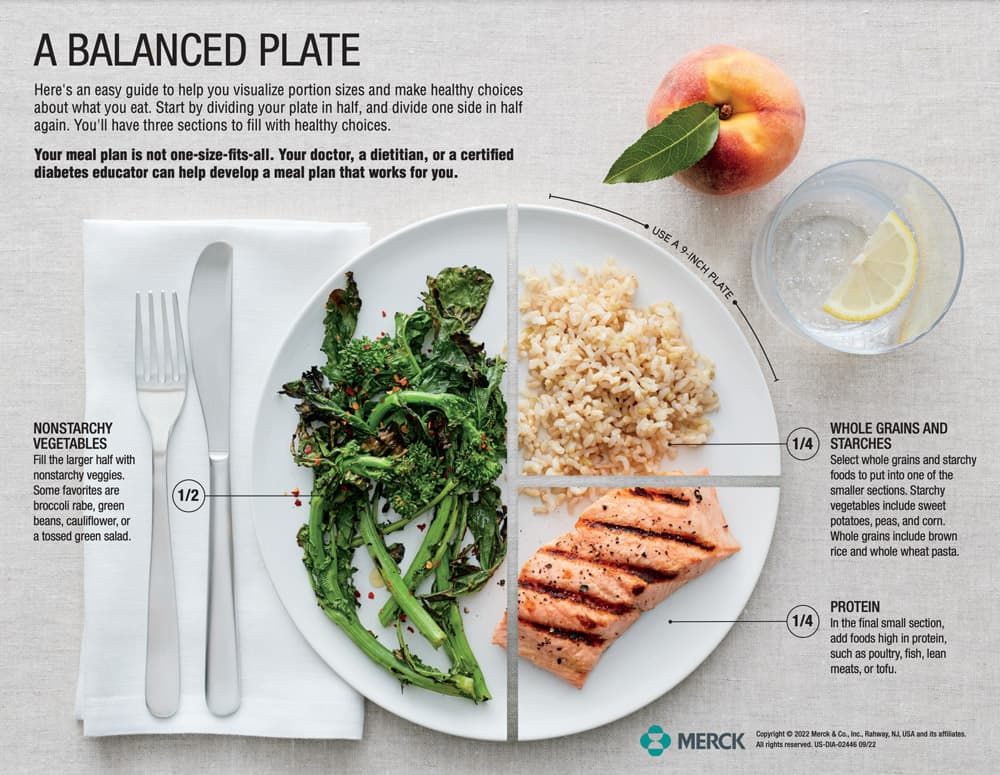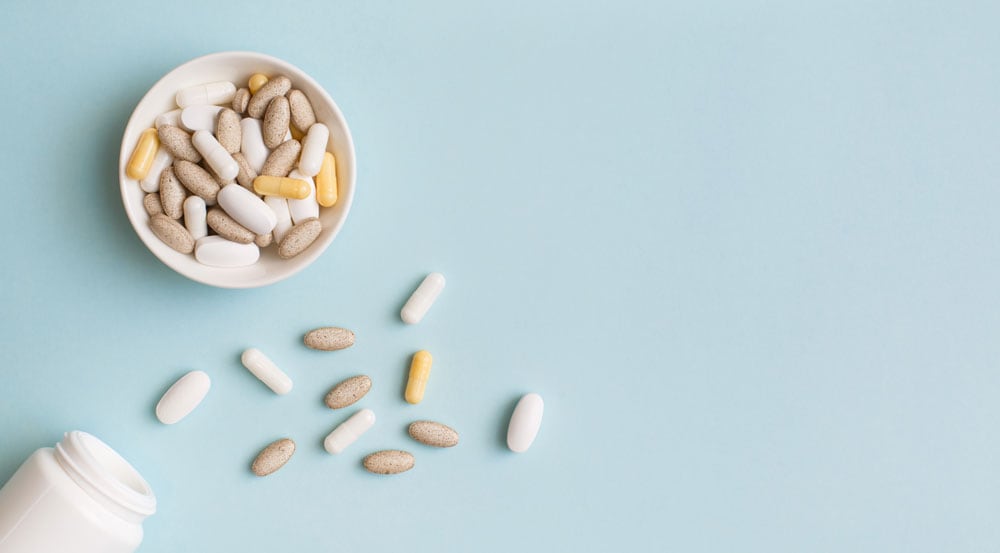Share this post
The holiday season brings joy, togetherness, and an abundance of delicious food. While indulging in festive treats is a cherished tradition, it can sometimes lead to digestive discomfort. However, with a few mindful practices and the right supplements, you can support your digestive system and fully enjoy mealtime during the holidays.
Lifestyle Tips for Digestive Support
Eat Mindfully
During holiday gatherings, it’s easy to get carried away and eat quickly. However, mindful eating can make a significant difference in digestion. Remember to chew your food slowly and savor every bite. This not only aids digestion but allows your brain to recognize when you’re full, preventing overeating.
Stay Hydrated
Proper hydration is essential for healthy digestion. Drink plenty of water throughout the day, especially before and after meals or between alcoholic beverages. Herbal teas, warm water with lemon, or infused water with fresh fruits and herbs can add variety to your hydration routine.
Include Fiber-Rich Foods
Fiber aids in digestion by promoting regular bowel movements and helps the body have a healthier blood sugar response after meals [1]. Examples of fiber-rich foods include leafy greens, broccoli, cauliflower, asparagus, berries, apples, quinoa, and legumes. These foods add bulk to your stool, prevent constipation, and promote healthy gut flora.
Pro-tip: follow the Balanced-Plate Method of filling half of your plate with fiber-rich foods, a fourth with a protein, and the last fourth with grains and starches to ensure you’re getting adequate amounts of fiber and other major food groups.
Limit Trigger Foods
Identify foods that trigger discomfort, such as fried or spicy dishes, and consume them in moderation. Opt for lighter options whenever possible and balance indulgent treats with nutrient-dense foods.
Pay Attention to Your Body’s Cues of Fullness
The sensations in your stomach and abdomen help you know when you’re full, yet most of us are never taught to mind our stomach’s cues. You can begin to practice listening to your stomach by using the following tips:
- Midway through your meal pause and focus on the sensation in your stomach and abdomen… are you feeling any sensations of fullness, tension or even discomfort? If so, these are your clues to push your plate away and be done for this meal. Remind yourself that more meals are to come and if you enjoyed that food, you can have more of it at your next meal.
- If you’re still hungry, continue to eat and pause again after a few more bites.
- Focus on paying attention to the sensations in your stomach rather than just focusing on the desire for the delicious taste of the food. Then heed your stomach’s cues.
Walk After a Meal
It’s so easy to want to lie down after a big delicious meal but encourage yourself and your loved ones to go for a stroll after mealtime. Walking, specifically after eating, helps reduce the risk of gas and heartburn, assists with blood sugar control [2], and provides a refreshing break for both mental and physical health.
Supplements for Digestive Support
In addition to following these recommendations, certain supplements can provide extra support to your digestive system during the holiday season.
Digestive Enzymes
Digestive enzymes are essential catalysts that assist in breaking down foods in the body and ensure optimal nutrient absorption. Amylase, protease, lactase, and lipase are key enzymes that target specific food components. Taking digestive enzyme supplements before meals can help alleviate bloating and discomfort and aid in nutrient absorption so you can enjoy your favorite holiday treats without worry [3].
Probiotics
Probiotics are beneficial bacteria that promote a healthy gut. Probiotic supplements maintain the balance of gut flora, normalize bowel habits and stool consistency, reduce the discomfort associated with certain food intolerances, and support the immune system [4]. Some strains that have been well-studied for their benefits include Lactobacillus acidophilus DDS-1, Bifidobacterium longum, and Saccharomyces boulardii [4].
Mastic Gum
Mastic gum, a natural resin source from the Pistacia lentiscus or Chios trees in Greece, offers a myriad of benefits for digestive health. Renowned for its anti-inflammatory and antibacterial properties, mastic gum aids in soothing gastrointestinal discomfort, reducing acid reflux, and promoting a healthy balance of gut bacteria [5].
Ox Bile
Ox bile supplements offer vital support for digestive health. Rich in enzymes, ox bile aids in breaking down fats, enhancing nutrient absorption, and preventing digestive discomfort [6]. By promoting efficient digestion, ox bile supplements contribute to reduced bloating and improved overall gut health.
Ginger
Ginger supplements and ginger tea offer remarkable benefits for digestive health. Gingerol, one of the main active compounds in ginger, possesses potent anti-inflammatory and antioxidant properties [7]. Ginger supplements or ginger tea is an excellent choice after a heavy meal as it can soothe the digestive tract, and relieve indigestion and nausea [7].
Herbal Liver Support: Milk Thistle, Phyllanthus, Dandelion
The liver is the main metabolic processing organ in the body, it produces bile for fat breakdown, and provides support for phase II detoxification to allow for the safe elimination of toxins. Three important herbs that help optimize liver function include milk thistle seed, phyllanthus leaf, and dandelion root. Together, they form a potent blend that not only supports liver function and a healthy lipid profile, but also ensures a balanced and efficient digestive system.
The Bottom Line
This holiday season, prioritize your digestive health by embracing mindful eating practices and incorporating supplements that support your gut health. By nourishing your body and being mindful of what you consume, you can savor every moment of the holidays without the discomfort of digestive issues.
References
Click here to see References
[1] Giuntini, E. B., et al. (2022). The Effects of Soluble Dietary Fibers on Glycemic Response: An Overview and Futures Perspectives. Foods (Basel, Switzerland), 11(23), 3934. https://doi.org/10.3390/foods11233934
[2] Reynolds, A. N., et al. (2016). Advice to walk after meals is more effective for lowering postprandial glycaemia in type 2 diabetes mellitus than advice that does not specify timing: a randomised crossover study. Diabetologia, 59(12), 2572–2578. https://doi.org/10.1007/s00125-016-4085-2
[3] Roxas M. (2008). The role of enzyme supplementation in digestive disorders. Alternative medicine review : a journal of clinical therapeutic, 13(4), 307–314.
[4] Kechagia, M., et al. (2013). Health benefits of probiotics: a review. ISRN nutrition, 2013, 481651. https://doi.org/10.5402/2013/481651
[5] Dabos, K. J., et al. (2010). Is Chios mastic gum effective in the treatment of functional dyspepsia? A prospective randomised double-blind placebo controlled trial. Journal of ethnopharmacology, 127(2), 205–209. https://doi.org/10.1016/j.jep.2009.11.021
[6] Ðanić, M., et al. (2018). Pharmacological Applications of Bile Acids and Their Derivatives in the Treatment of Metabolic Syndrome. Frontiers in pharmacology, 9, 1382. https://doi.org/10.3389/fphar.2018.01382
[7] Nikkhah Bodagh, M., et al. (2018). Ginger in gastrointestinal disorders: A systematic review of clinical trials. Food science & nutrition, 7(1), 96–108. https://doi.org/10.1002/fsn3.807
[8] Gillessen, A., & Schmidt, H. H. (2020). Silymarin as Supportive Treatment in Liver Diseases: A Narrative Review. Advances in therapy, 37(4), 1279–1301. https://doi.org/10.1007/s12325-020-01251-y
[9] Sowjanya, K., et al. (2021). Efficacy of Phyllanthus niruri on improving liver functions in patients with alcoholic hepatitis: A double-blind randomized controlled trial. Indian journal of pharmacology, 53(6), 448–456. https://doi.org/10.4103/ijp.IJP_540_20
[10] Kania-Dobrowolska, M., & Baraniak, J. (2022). Dandelion (Taraxacum officinale L.) as a Source of Biologically Active Compounds Supporting the Therapy of Co-Existing Diseases in Metabolic Syndrome. Foods (Basel, Switzerland), 11(18), 2858. https://doi.org/10.3390/foods11182858
The information provided is for educational purposes only. Consult your physician or healthcare provider if you have specific questions before instituting any changes in your daily lifestyle including changes in diet, exercise, and supplement use.
Share this post
Related posts
Mending the Leaky Gut
Natural strategies to support intestinal integrity My neighbor’s fence is beyond beautiful, but serves little to no practical purpose. With its widely spaced slats, the fence affords any passerby an only slightly fettered view of the yard and its goings-on. A cat, rat, or even small dog could easily pass back and forth across…
Hypothyroidism and Gluten-Free Diets
Why gluten and Hashimoto’s thyroiditis don’t mix Evidence shows that eating wheat and gluten may drive the autoimmune destruction of the thyroid gland. The thyroid is the body’s master of metabolism, regulating important functions like digestion, energy production, mental sharpness, sweating, skin healing, fat burning, and heart rate.1 What is hypothyroidism? Is it the…
Vaccine Efficacy, Part 2 of 2: Can a Healthy Gut Microbiome Improve It?
The influence of probiotics on the immune response Vaccines are among the greatest successes of modern medicine, helping to protect entire populations against a wide range of infectious diseases.[1] However, there is considerable variation in the efficacy of vaccines amongst individuals.[2] The magnitude of antibody titers induced in individuals receiving the seasonal influenza vaccine,…
Leaky Gut = Fatty Liver
How poor digestive integrity can cause liver disease The concept of the “gut-liver axis” is not a new one: it was first described in 1987 when a group of researchers found that patients with cirrhosis had high rates of antibodies in their blood against foods like egg, whey, and casein.[1] Since that time, the…
Can Probiotics Soothe IBS?
Evidence supports the use of probiotics for IBS and enhanced quality of life Constipation, bloating, flatulence, diarrhea and other digestive problems are not fun, especially for people who suffer from them frequently. The results of a recent international survey of over 73,000 adults are striking: 40% of participants said they suffered from one or…
Tips for a Happy Belly This Holiday Season
How to enjoy the season without paying for it later With the winter holidays upon us, holiday gatherings and celebrations with an abundance of food and drink are commonplace. “Worry about it in the new year” is an approach many opt to take with respect to the excess calories consumed this time of year….
Categories
- Botanicals (56)
- GI Health (53)
- Healthy Aging (121)
- Immune Support (39)
- In The News (39)
- Kids Health (21)
- Stress and Relaxation (50)
- Uncategorized (1)
- Video (9)
- Vitamins & Minerals (51)







